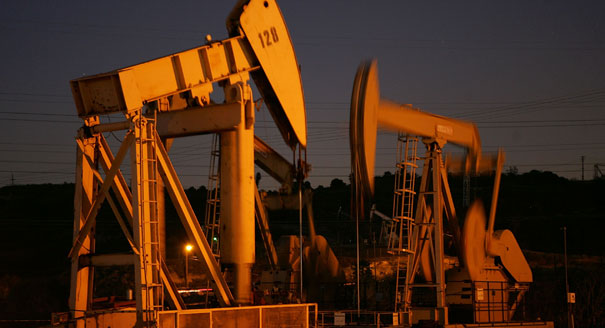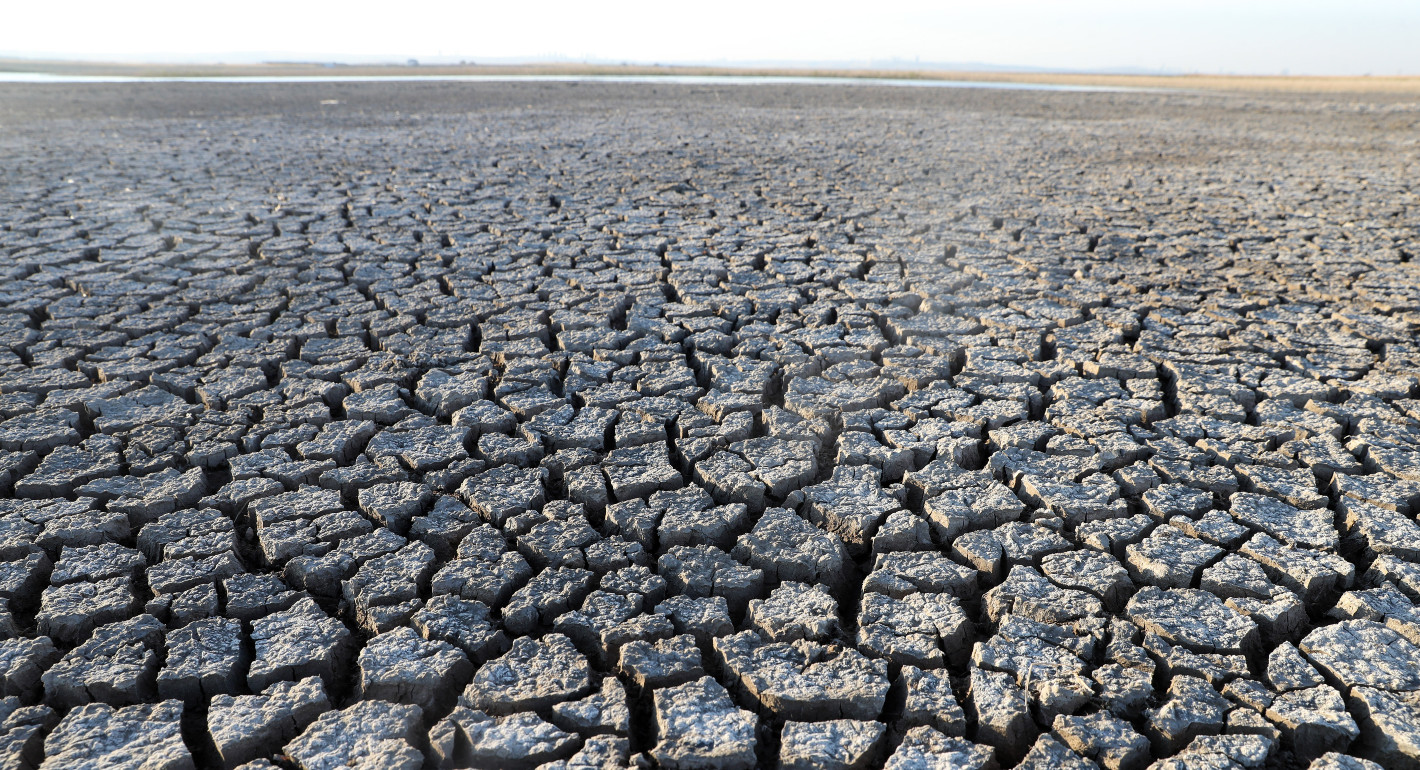David Rothkopf
{
"authors": [
"David Rothkopf"
],
"type": "legacyinthemedia",
"centerAffiliationAll": "",
"centers": [
"Carnegie Endowment for International Peace"
],
"collections": [],
"englishNewsletterAll": "",
"nonEnglishNewsletterAll": "",
"primaryCenter": "Carnegie Endowment for International Peace",
"programAffiliation": "",
"programs": [],
"projects": [],
"regions": [
"North America",
"United States"
],
"topics": [
"Economy",
"Climate Change"
]
}
Source: Getty
Cursed With Plenty
America's energy boost is possibly the biggest geopolitical change to hit the world since China's rise, but the country's leaders must be careful not to neglect real underlying issues or the requirements of long-term growth.
Source: Foreign Policy

Of course, given the clown-show antics that predominate in Washington and the complexity, volatility, and risks that confront the United States in the world, the president faces potential peril almost wherever he looks. Rather than focusing on the country's more obvious problems, however, I'd like to look at one that is perhaps more worrisome precisely because it comes cloaked in opportunity: America's energy boom.
That's right: the boom. The technological breakthroughs enabling America to tap vast reserves of previously inaccessible oil and natural gas have been heralded as a bonanza for the United States, not least by Obama, who told everyone tuning in to his speech at the Democratic National Convention that "we can cut our oil imports in half by 2020 and support more than 600,000 new jobs in natural gas alone." Analysts at Citibank are predicting that the United States will be the world's fastest-growing oil and gas producer well into the next decade. Great, huh? Not so fast.
It looks like the United States is showing the early symptoms of a particularly nasty case of the Resource Curse. The dreaded syndrome, also known as Hugo Chávezitis, tends to strike countries when they tap into large finds of oil, gas, or other valuable natural resources. Although such bonanzas clearly have their advantages, the influx of new wealth often leads countries to neglect real underlying problems or the requirements of long-term growth simply because they can spend their newfound riches to paper over their troubles. Political leaders don't have to do the hard work of building human capital and promoting sustainable economic growth -- they can just coast along, riding the benefits of the resource boom.
You can understand the appeal, especially to America's dysfunctional governing class. That is precisely what is so worrisome about all the talk of how these new energy finds will literally fuel the country's next period of economic expansion. You heard it during the recent presidential campaign from both candidates. You heard it in a slew of reports from Wall Street and international organizations. America is on the verge of energy independence. It will soon overtake Saudi Arabia as an energy producer. It will no longer have to worry about the messy realities of the Middle East. New boomtowns like those springing up in Canada and North Dakota will spread across the United States. Cheap energy will attract foreign investment! Revitalize U.S. manufacturing! Help America beat China and India!
Here's the biggest problem with all those assertions: They are plausible. America's energy boost is possibly the biggest geopolitical change to hit the world since China's rise. It almost certainly will stimulate U.S. growth, reduce U.S. dependency on foreign oil, and provide Americans with large amounts of comparatively clean natural gas. And since growth leads to higher revenues, it may help cut the federal deficit. Because America won't be as dependent on the Middle East, it may even be able to reconsider its involvement in the region. Already, U.S. monthly oil imports have nearly halved from their high in November 2005, and annual natural gas production has increased almost 30 percent from 2005 to 2011. What's not to like?
In truth, however, we don't yet know the real nature of this impending energy revolution. Natural gas prices are still too low to warrant profitable drilling in some areas. The environmental impact of widespread fracking -- the controversial water-intensive process of using pressurized fluid to release natural gas -- in different geological settings remains a mystery. Many regulatory decisions that will affect the growth of U.S. shale gas and oil will be made at the state level or by municipalities whose only "regulatory" option is an outright ban, and the resulting patchwork of rules may produce roadblocks to expansion and achieving necessary economies of scale. We are not sure of the economics of some of these new wells, when they might be depleted, and how that uncertainty might constrain the infrastructure investment needed to bring these resources to market. The whole boom could happen more slowly, or falter more widely, than expected. It's probably going to do a lot of good for a lot of people and for the U.S. economy as a whole, but it is unlikely to unfold without twists, setbacks, and disappointments.
Nor should the shale boom in America, even if it produces growth, be seen as a get-out-of-jail-free card for politicians. Tax revenues might go up, but nowhere nearly enough to address the $16 trillion federal debt plus the perhaps $87 trillion in unfunded retiree health-care liabilities the country faces. We may see growth associated with energy, but the United States will not be competitive without also fixing what's broken in the other drivers of long-term prosperity, such as education and infrastructure. America may be able to pivot away from the Middle East -- Lord knows it should -- but energy markets are global, and upsets in that region will still have big consequences. Not to mention that instability in the region will still produce security risks and threats to U.S. citizens, no matter where the country gets its energy from.
Shale gas will also seemingly give our beloved politicos a pass on one of their greatest failures: stopping climate change. By making available large supplies of a fuel that is comparatively cleaner than oil or coal, shale-gas drilling should lead to lower emissions as the United States converts -- hopefully with some speed, focus, and purposefulness -- its power plants from coal to gas. It could produce benefits as the country moves to bigger fleets of natural gas vehicles. But these resources should not be seen as manna from the heavens. For one thing, shale oil creates serious carbon emissions. For another, using more gas won't slow emissions sufficiently in the United States or worldwide.
Each new gas field discovered in America is as rich in promise as it is in hydrocarbons. But if the country allows the potential benefits to dazzle or delude -- if it lets them lull the country into complacency about the other major challenges it faces -- we could find them providing not so much a shot of energy to U.S. growth as a shot of morphine to America's body politic, hiding the pain and clouding its vision as to what is truly necessary to take advantage of this potentially great moment in American history.
About the Author

Former Visiting Scholar
David Rothkopf was a visiting scholar at the Carnegie Endowment as well as the former CEO and editor in chief of the FP Group.
- How Bush, Obama, and Trump Ended Pax AmericanaIn The Media
- A Bigger ClubhouseIn The Media
David Rothkopf
Recent Work
Carnegie does not take institutional positions on public policy issues; the views represented herein are those of the author(s) and do not necessarily reflect the views of Carnegie, its staff, or its trustees.
More Work from Carnegie Endowment for International Peace
- The Gulf Monarchies Are Caught Between Iran’s Desperation and the U.S.’s RecklessnessCommentary
Only collective security can protect fragile economic models.
Andrew Leber
- Duqm at the Crossroads: Oman’s Strategic Port and Its Role in Vision 2040Commentary
In a volatile Middle East, the Omani port of Duqm offers stability, neutrality, and opportunity. Could this hidden port become the ultimate safe harbor for global trade?
Giorgio Cafiero, Samuel Ramani
- Europe on Iran: Gone with the WindCommentary
Europe’s reaction to the war in Iran has been disunited and meek, a far cry from its previously leading role in diplomacy with Tehran. To avoid being condemned to the sidelines while escalation continues, Brussels needs to stand up for international law.
Pierre Vimont
- Lessons Learned from the Biden Administration’s Initial Efforts on Climate MigrationArticle
In 2021, the U.S. government began to consider how to address climate migration. The outcomes of that process offer useful takeaways for other governments.
Jennifer DeCesaro
- India Signs the Pax Silica—A Counter to Pax Sinica?Commentary
On the last day of the India AI Impact Summit, India signed Pax Silica, a U.S.-led declaration seemingly focused on semiconductors. While India’s accession to the same was not entirely unforeseen, becoming a signatory nation this quickly was not on the cards either.
Konark Bhandari








